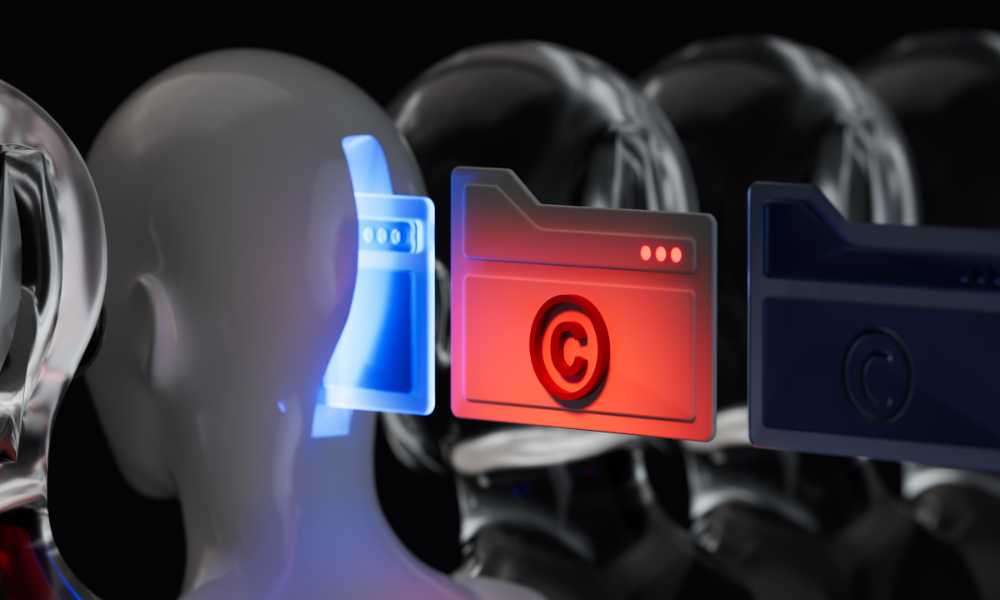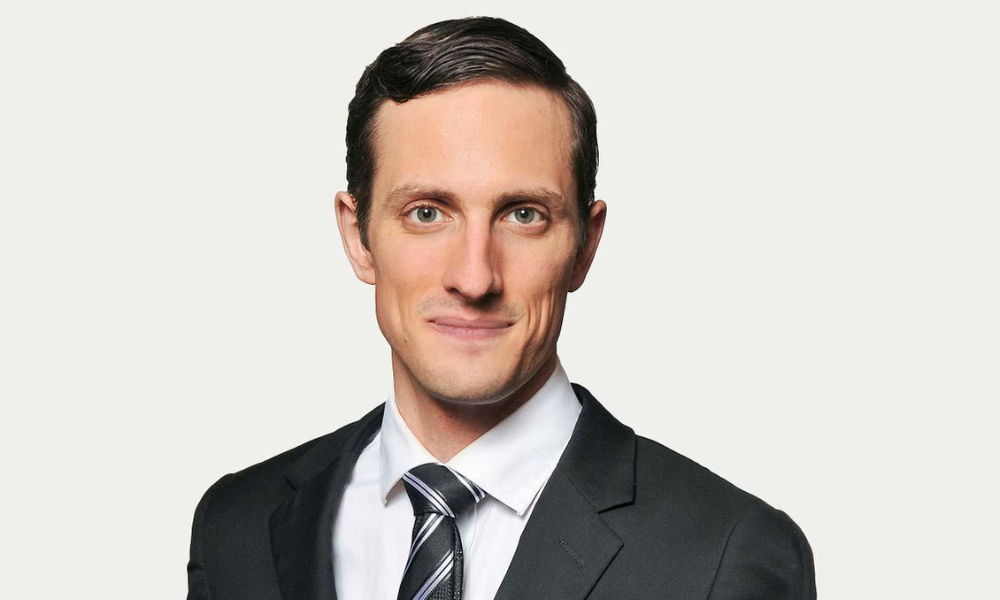
AI can help fight online fakes, but it is also being used to create more

Artificial intelligence is a double-edged sword for businesses fighting online intellectual property infringement. While lawyers say AI tools can help identify and enforce IP, new technologies are making infringing much easier.
“The most difficult thing of enforcing online is the anonymity and the ease with which the infringers can copy what was difficult to create,” says Daniel Anthony, a Smart & Biggar LLP principal specializing in trademark, copyright, and internet law.
 Daniel Anthony
Daniel Anthony
Anthony emphasizes the importance of a robust IP protection program, which includes registering copyrights and trademarks when he works with clients who have online businesses. This can help these businesses remove counterfeit goods or infringing content on platforms like Amazon and Facebook, where these products can thrive.
For many of Smart & Biggar’s clients, contractual protections through online terms and conditions can also help protect them where traditional IP protection may not.
Anthony says many of his clients use a hybrid approach, combining AI-driven tools with human oversight to improve the detection of infringements. AI can scan vast amounts of data for potential violations, and legal professionals can then review it to determine the appropriate course of action. Anthony cites domain name analysis and music copying detection as typical examples of places AI can be used.
“AI can listen to a lot of sounds, soundtracks, and videos on YouTube, and it can pull up suspected musical copying.”
Yet Anthony cautions clients against automating too much of their IP infringement enforcement.
In Keezio Group, LLC v. The Shrunks’ Family Toy Company Inc., the BC Supreme Court found an IP rightsholder liable for damages due to the filing of groundless trademark and copyright complaints with Amazon, which Anthony says is the first case in Canada to rule on this issue.
The case highlights how rightsholders should avoid false or misleading complaints that discredit a competitor. Anthony says that, in uncertain cases, engaging with your competitor directly through a demand letter may be more effective than immediately complaining to online marketplaces.
He says AI can also be used defensively, such as embedding digital signatures in code to detect unauthorized use.
Nelson Godfrey is a lawyer and national practice group leader of the trademarks group at Gowling WLG. He says IP infringement can occur for clients across various industries. Product-based industries’ primary concern lies with counterfeit and knockoff products being sold under similar names, often involving trademark infringement or passing off. In media and entertainment, unauthorized use of characters and trademarks in online merchandise is prevalent. He also says social media platforms are often misused to sell unauthorized products and create unauthorized profiles.
 Nelson Godfrey
Nelson Godfrey
Godfrey says for many clients, there is often an overwhelming volume of infringements. “People don’t put up one infringing listing. People put up hundreds of infringing listings.”
To help clients combat this, Gowling WLG developed an AI tool to detect infringement called the “Saturn brand protection service.” The tool was a collaborative effort between the firm’s Canadian and UK offices. Godfrey says the tool has been in the works for several years, so it isn’t “a reaction to the current trend in AI tools.”
The tool analyzes trademarks, logos, and other forms of IP, comparing them against online content to flag potential unauthorized uses. Client feedback refines the tool’s accuracy and adaptability to evolving infringer tactics.
“The software will learn, so the AI technology will kick in and further respond to feedback,” he says. Some clients prefer to use the tool directly and pay a subscription fee, and Gowling WLG will offer consultation or a lawyer’s time for any required follow-up.
“It’s a great tool to increase our efficiency and allow us to focus on really high-level strategy work.”
Godfrey says some of that strategy work involves investigating widespread counterfeiting campaigns to go after the “heart of the problem” rather than sending the individual notices that the software can handle. He says the platform can perform in different languages and is effective with most large-scale international sites.
Julie MacDonell is the CEO and founder of Haloo, which uses AI for trademark searches. She sees AI as having a transformative impact on who can benefit from IP protection.
 Julie MacDonell
Julie MacDonell
MacDonell says her company’s technology offers comprehensive trademark searches traditionally conducted by human analysts. This not only surpasses the accuracy of human analysis, she says, but also significantly reduces the time and expense involved in securing a trademark.
“We built algorithms to conduct all of that human work in human analysis, to draw out trademark conflicts from datasets, and then to rank them by infringement risk.”
MacDonell says Haloo serves lawyers and small businesses, but how it markets its services to both can vary significantly.
For example, Haloo’s search tool can be integrated with consumer-facing websites like Google. “In a 20-second tool, we have worked with Google to simplify the user experience … to the extent that somebody who’s not a lawyer at all can self-serve their own trademark clearance.”
MacDonell says many small clients often don’t understand the difference between registering their business and protecting their IP. Platforms like Amazon and Google want that to improve so their marketplaces work better.
“We hear this over and over again from clients. The small clients will come to us when they’re facing litigation or some kind of infringement dispute. They don’t come to us generally to search and file trademarks. It’s the bigger clients that do that routinely.”
By integrating these tools earlier in a business’ life cycle at a much smaller cost, MacDonell aims to democratize IP protection.
“My personal fundamental belief is that what we’re going to see in legal tech, across the board with AI, is this revolution … where people who were underserved by lawyers will have access to legal protections for the first time.”
For Richard Pfohl, Music Canada’s general counsel, identifying IP infringement by new artificial intelligence companies is a significant priority.
 Richard Pfohl
Richard Pfohl
In October 2023, a cohort of music publishers sued AI company Anthropic for allegedly using copyrighted song lyrics to train its chatbot. According to reports, the lawsuit included songs from Beyoncé, Bruno Mars, and the Beach Boys, and the case was said to be the first of its kind.
“The concern for us is when AI is used in a way to effectively steal intellectual property, to take someone else’s creations and create something out of those creations.”
Pfohl says jurisdictions around the world are struggling with similar challenges. He points out how countries have come together to update and adapt copyright laws to the digital and AI landscapes, citing examples such as the World Intellectual Property Organization’s treaties, European Union directives, and various national legislation.
Pfohl says Music Canada believes that current copyright laws can “do the job” of protecting artists from IP infringements. Still, his organization advocates for transparency and record-keeping legislative reforms to bolster copyright laws.
“Where you’re training large language models on other people’s content, we contend you need to disclose what you’re training them on,” he says.
Musicians now face new forms of IP theft, such as deep fakes. Music Canada is currently lobbying Parliament to protect what is referred to as “personality” or “publicity” rights.
“There can be all sorts of different uses of it that can fundamentally undercut the value of an artist.”
Keezio Group, LLC v. The Shrunks’ Family Toy Company Inc., 2024 BCSC 64:
Gowling WLG recently announced an artificial intelligence service to protect brands against online infringement.
“Saturn” includes the following services: